- Home
- Anne Frasier
Sleep Tight Page 3
Sleep Tight Read online
Page 3
"When will she be here?"
Blythe looked up at the clock again. "Soon. You have to talk to her, sweetheart. She's your sister."
Mary reached for her coat, as if to get something out of the pocket, then stopped. "Still smoking?" Blythe asked.
"No, but I'm seriously thinking of taking it up again."
Chapter 3
Gillian stood staring at the red front door of her mother's house, afraid to go in.
Mary was home.
Gillian turned and took two steps toward her car, then stopped, curbing the impulse to get the hell out of there. Detective Wakefield was always telling her to face her fears head-on. She was an adult now. A cop now. There were things she had to tell Mary-things her sister wasn't going to like.
Gillian took a deep breath and pushed open the door. "Hi, Mom! It's me!" Even though her heart was hammering, the greeting was her usual.
"In here!" Blythe shouted from the direction of the kitchen.
She found her mother loading the dishwasher.
"She's outside."
Gillian followed Bythe's glance. Her older sister was standing in the backyard, hands in her coat pockets, studying the fall flowers and vines that lined a wooden fence.
"How does she seem?"
"Different. A little different, I think."
Gillian knew she was the reason Mary hadn't been home in five years. That knowledge sometimes made her feel physically ill. There hadn't been any huge fight. No confrontation. Just an initial aloofness that Gillian had figured Mary would eventually get over. Time passed. Holidays came and went. Mary didn't return.
Frightened as she was to finally be coming face-to-face with her sister, she also saw it as an opportunity to begin to patch things up. Gillian opened the sliding glass door and stepped outside. The day had been warm for October, but the sun was going down, and the air suddenly smelled like fall.
She and Mary had always loved fall, especially Halloween. They liked dressing up and making people try to figure out who they were, their costumes reflecting Blythe's influence.
"Let me guess," a neighbor would say, bending down to their eye level. "A couple of hobos?"
"No! Walt Whitman and Henry David Thoreau!"
The following year-"Guess who I am!" Mary had shrieked.
"A nurse? A mental patient?"
"No! Sylvia Plath!"
"Oh, what a cute bunny."
"I'm not a bunny, I'm Gloria Steinem!"
The trick or treating eventually evolved to staying home and passing out treats-homemade trail mix or granola squares.
Now fall always reminded Gillian of the day Fiona died.
Heart hammering, Gillian spoke. "Hi, Mary." Her sister turned around. She'd always considered Mary beautiful, but now she was struck by an added maturity and serenity. Dark hair, dark eyes. Mary took after their Irish-Italian father, Gillian after the light, petite, Swedish Blythe. Mary would always be beautiful, bordering on exotic: Gillian was often described as "cute."
"Mom's flower garden is flourishing as usual," Mary said, as if Gillian had just returned after stepping out to get a paper. "These mums are spectacular."
Gillian came closer. "I think they're a new variety. Called Star something. You know how crazy Mom is about mums."
"Mum's mums."
An old joke. A childhood joke. Gillian smiled.
"Yeah."
"Still have Birdie?" Mary asked, referring to the parrot Gillian had had since grade school.
"Yeah. He's as obnoxious as ever."
The trip down memory lane didn't last. "Mom said you wanted to talk." Mary had quickly reverted from sister to cool professional, as if instantly regretting the brief, shared moment. "That you had something to tell me."
Gillian was shaking inside, and she struggled to hide her nervousness. "You may have heard that I got a job with the Bureau of Criminal Apprehension." A state agency, the BCA had been established over seventy years ago to assist the police in complex investigations.
"You're kidding." Mary made no attempt to hide her surprise, looking as if she equated Gillian's position to that of a fox guarding the henhouse.
Why was her having a job at the BCA so hard to believe? Mary's reaction to her announcement gave Gillian's nervousness a jolt and rapidly replaced fear with irritation. Her next words, the words she'd been so afraid to utter, were delivered with a slight taunt. "I've been assigned to the case you're working on."
Mary frowned. "Analyzing evidence?" she asked, as if struggling to imagine her sibling in such a setting. She still didn't have a clue how Gillian's news was going to impact her.
"No." Pause for effect. "I'm a field agent now." Mary grew very still as she processed the information.
Here it comes, Gillian thought.
"You shouldn't be involved in this case," Mary told her with authority. "You're going to have to turn it down for personal reasons."
She was so controlling. Blythe kept saying how much Mary had changed, but this was the same bossy sister Gillian knew from childhood. "Because of you?" she asked.
"Because of Gavin Hitchcock," Mary said, her voice rising.
"Gavin? What does Gavin have to do with it?" "Oh, come on. It must have crossed your mind. He gets out of prison and suddenly teenage girls are being killed."
"Is that why you took this assignment?" she said heatedly. "Because of Gavin Hitchcock?"
That hadn't taken long, Mary thought. So much for a meeting of mature adults. Gillian hadn't changed. She was equipped with sibling radar that directed her to the quickest way to get under Mary's skin.
"You've always been blind when it comes to Hitchcock," Mary said.
Gavin Hitchcock was sentenced to twenty years with the possibility of parole after nine. He should have gotten life. He should have been put to death, but unfortunately Minnesota didn't have the death penalty.
He'd been in prison six months when Gillian took it upon herself to write to him. That was bad enough, but then she began visiting Hitchcock. At a time when Mary needed the love and support of her sister, Gillian had chosen to bestow her sympathy on the man who had killed Fiona. On the heels of her death, it was a double blow from which Mary had never recovered. "He killed my best friend," she said. "I don't think Gavin did it."
"I can't believe you still take his side!" How in the hell could she be a cop if she blindly sympathized with every killer out there? "What about his fingerprints? His semen? Wake up, Gillian. For chrissake, he was found staggering down the street with Fiona's blood on his hands! He all but confessed!"
"He was young. Seventeen. If he did do it, it was an accident."
"Ed Kemper was fifteen when he shot and killed both his grandparents. He got out of prison at age twenty-one. After that, he went on to kill eight women before he finally turned himself in-not out of remorse or regret, but because he wasn't getting the publicity he thought his horrific murders deserved."
"Gavin's changed. The prison psychiatrist said he isn't a threat to anyone."
Mary could have cited more case blunders where killers had been released with the support and backing of social workers and psychiatrists. Why? Because the idealists wanted to believe that basically people were good, and that bad "habits" could be changed.
"You're giving Hitchcock qualities he doesn't possess. You feel sorry for him, but he doesn't deserve your sympathy or your time."
"Do you feel any sympathy for anyone anymore? I don't think so. I don't think you're capable of sympathy."
"I feel sympathy, but I'm more selective with it than you are," Mary said, her voice biting. "I happen to save it for the victim, not the son of a bitch committing the crime." The tension in her body was making her shoulder ache. It was bad enough when strangers and madmen stabbed you in the heart, but your own family? Your own sister?
"You betrayed me." There. It was out. Words she'd never spoken to Gillian.
"I'm sorry you see it that way, but I did what I had to do. I did what was right for me."
<
br /> "What made you want to become a cop?" Mary really wanted to know. From where she stood, it made no sense at all. She knew the idea was ludicrous, but it almost seemed like another way for Gillian to get to her.
"I have my reasons," she said evasively.
Mary had had more than enough of their reunion. She felt ill. She needed to get out, get away. "I'm going for a walk." Without looking in Gillian's direction, she cut across the yard, slipped out the gate, and began striding rapidly down the sidewalk, hands in her pockets, the hem of her dark coat slapping against her knees.
She ran across the street, ducking under the shadows of an elm tree. She wanted to keep running, but after a couple of minutes she forced herself to slow to a brisk walk. She hadn't yet recovered enough from her injury to take up jogging again, and the repetitious jarring motion was making her shoulder ache even more. The pain was actually a comfort, something to concentrate on, something to take her mind off a different kind of pain.
Why had she come here? she wondered with fresh dismay. Why hadn't she simply refused the case?
She heard the sound of shifting gears; then a small red car rounded the corner, came roaring down the street and pulled up beside her. Gillian leaned across the passenger seat and swung the door open. "They just found another body."
The interior of the car was an isolated pod of stony silence as they rushed to the crime scene. Gillian seemed to be entirely focused on driving like a New York City cabdriver, while Mary tried to avoid looking at her. Even though traffic was heavy, they made it to the Lake Harriet Rose Garden in fifteen minutes.
Mary had been there a few times. It was near the lake, with a bird sanctuary, boardwalks that spanned marshes, and secluded trails winding through thick stands of trees.
Police cars, silent with lights flashing, were parked at odd angles, as if the drivers had rushed in and jumped from the vehicles before they'd stopped. Yellow crime-scene tape had been strung around light poles and trees. Several officers were dealing with crowd control. Others were interviewing bystanders and possible witnesses, getting what information they could. A large, frazzled-looking man in a dark suit was barking out orders.
Gillian approached him. "Detective Wakefield?"
He swung around. "Gillian? Can't talk now. Remember, you aren't here in an official capacity tonight, just an observer. Don't forget slippers and an escort."
"Thanks."
The body had been found inside the bird sanctuary, near a blacktop jogging and walking path, about a quarter of a mile from the parking lot and lake. After sliding paper slippers over their shoes, the sisters were escorted to the crime scene by a young female officer with a high-powered regulation flashlight. They followed a paved path lined with yellow marking flags to an area that was ankle deep in leaves.
Night crime scenes were surreal. Generators hummed and high-powered lights illuminated the area until it was bleached and shadowless. In contrast, just past the circle of intensity, a person could drop off the face of the earth into a pit of blackness. Just as surreal for Mary was being at a Minneapolis crime scene with her sister beside her. Was this Gillian's first homicide? Mary wondered. How would someone who used to get light-headed at the sight of blood react to violent death?
The body belonged to a woman. She was lying facedown, partially covered in leaves…
She'd found a body just like that before. The years evaporated, and Mary was once again staring at Fiona's lifeless body. "She's dead, Mrs. Portman! She's dead!"
Mary wasn't sure how long she stood there before realizing Gillian was talking and that she was being introduced to Agent Elliot Senatra, her local FBI contact. She hoped the confusion of the surroundings covered any strangeness in her reaction as she made the transition from past to present.
"I'd shake, but as you can see-" Agent Senatra held up a latexed hand. He was nice-looking, black, about thirty-five, with small wire glasses and a gold earring. He was dressed in an expensive suit, and Mary guessed he'd been pulled from a fancy dinner or an evening on the town.
"That's perfectly all right," Mary said. "Please- don't let us distract you."
Someone called to him. He gave them a half-wave and moved away.
Cameras were flashing; a video camera was running. Evidence was being collected. Finally the body was rolled onto a transparent plastic sheet-and a collective gasp was heard.
No eyes.
She had no eyes, just dry empty sockets looking blankly at them.
"Were the last victim's eyes removed?" Mary whispered to her sister.
Gillian leaned close, appearing unafraid and un-fazed. She'd obviously been in this situation before.
"Yes."
Here it was, their first nonhostile conversation in five years, and they were discussing missing eyeballs. But the role of FBI agent was second nature to Mary. She fell into it with ease and found comfort in its familiarity. And like the professional she was, she pushed all remnants of her fight with Gillian from her mind to focus on the scene before them. "And the other body?"
"We don't know. The coroner's report said she'd been in the woods approximately ten days before being found. What hadn't rotted was eaten by animals."
"Eyes are a delicacy in the scavenger world." "What's the deal with her hands?" The question came from a young male police officer.
Mary pulled her gaze from the empty sockets to track down the partially nude body. The woman's right arm, stiff with rigor mortis, was bent at an odd angle, the hand-now a claw-gripping the air. Attached with green tape to the tip of each finger were what looked like small branches. Mary leaned closer until she recognized the spiny shape of a familiar leaf. She straightened. "Rose stems." She looked at her sister. Gillian was staring at the clawed hand, her mouth a small O. Somebody whistled. Somebody else let out a nervous laugh.
"We'll get out of here so you'll have more room to move around," Mary said, addressing Agent Senatra.
Senatra, along with almost everyone else, was still staring at the hand. He looked up slowly and spotted Mary. Recognition dawned. "Detective Wakefield's gonna try to rush this through and get an autopsy done tonight," he said. "Hopefully I'll have some information when we meet." He pointed at her with a gloved hand. "FBI building. Nine o'clock tomorrow. You need directions?"
"I know where it is."
An officer guided them back to the parking lot; then they were on their own.
"That was weird as hell," Gillian said, sounding slightly out of breath as they both removed and tossed their slippers into a nearby container before heading toward the car. "Have you ever seen anything like it?"
"Never. Nothing that even comes close." Mary couldn't remember when she'd last been surprised by a murder scene, but she'd been surprised tonight.
"What do you think it means?"
"I'm not certain, but it looks to me like he was grafting her."
"Grafting?"
"Trying to turn her into something else, something she could never be."
Their earlier conflict had been pushed to the background. They were two officers trying to make sense of possible clues.
"Graft her into what? A plant?" Gillian sounded unconvinced. "A rosebush?"
"Have you read Symbolic Death by Ivy Dunlap?" Mary had worked with Ivy on a Chicago serial killer case. Since then the two of them had become good friends. "In it, she theorizes that oftentimes killings are symbolic, that the manner and style in which the killing takes place has a deep, personal meaning for the killer."
"And what do roses symbolize?"
"Love. Beauty. Loyalty. Perfection. Femininity Any number of things depending upon one's viewpointlts too early for speculation-I haven't seen any information on Ihe other two victims-but in this stance the simplified message is telling us that the woman didn t live up to his expectations."
"It seems like a twisted fairy tale."
"Or twisted romance."
Chapter 4
It took twenty minutes to get from Lynwood Park to the FBI office in d
owntown Minneapolis. Mary circled the block in her rental car-a green Ford Taurus- and ended up in a lot between Marquette and Nicollet.
Years ago, the local division of the FBI had moved across the street and up the block to an ultramodern facility they shared with other businesses. Mary walked through the revolving doors of the skyscraper and took the escalator to the second floor. At the security desk, she flipped open her FBI photo ID. That garnered her access to a silent elevator that carried her to the eleventh floor, where she was directed down a carpeted hallway to Agent Senatra's office.
He shook her hand this time. The earring, which wasn't approved FBI dress, was gone. He'd traded his expensive suit for a more conservative gray.
The office was military tidy, with filing cabinets, a TV, and a VCR in the corner and maps of Minnesota and the Twin Cities on the wall. On a shelf was a framed photo of Agent Senatra and a laughing little girl.
"My daughter," he said, sitting down at his desk and motioning for Mary to take the seat across from him.
"She's beautiful." Fortunately, Mary could be honest in her response-something that wasn't always possible.
"She just turned eight and is a handful." He adjusted his burgundy tie. "Got any kids?"
"No," she said in a way that always sounded like an apology. It1 was good to make small talk before getting down to business, but the subject of parenting was something Mary knew very little about.
"We work closely with the Minneapolis Police Department's Homicide Unit. I hope you don't mind, but I've taken the liberty of arranging for you to meet privately with Detective Wakefield after your briefing here."
Wakefield. The detective Gillian had spoken to the night before. "That's fine."
They were lucky. In some cities, the police didn't work closely with the FBI. In some cities, if a crime occurred, the FBI might not know about it until after the media chewed it up and spit it out. "Here's what we've got."
Senatra put an eight-by-ten color photo of a dead, eyeless girl on the desk. "Four weeks ago seventeen-year-old April Ellison was kidnapped from the Mall of America. No leads* Nobody saw anything. A lot of people speculated that she'd run away. One week ago, her body showed up. Where? In one of the mall elevators. At that point, we treated it as a single, isolated incident. Five days before that, a body was found in a Minneapolis nature park." He put down another photo, this of an unrecognizable decayed body. "Turned out to be an eighteen-year-old named Bambi Scott."

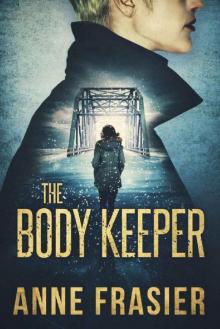 The Body Keeper
The Body Keeper Hush
Hush Play Dead
Play Dead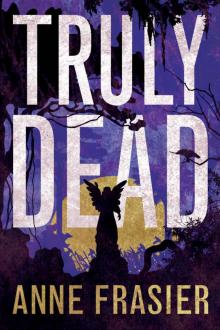 Truly Dead
Truly Dead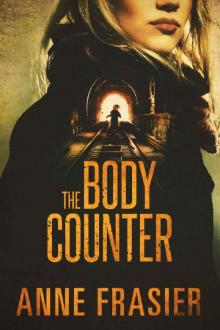 The Body Counter
The Body Counter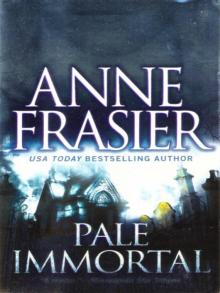 Pale Immortal
Pale Immortal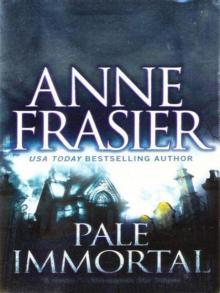 (2006) Pale Immortal
(2006) Pale Immortal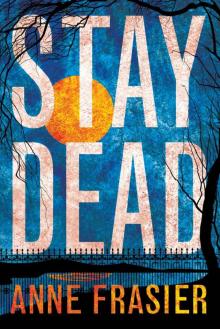 Stay Dead (Elise Sandburg series)
Stay Dead (Elise Sandburg series) Sleep Tight
Sleep Tight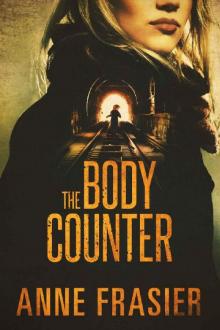 The Body Counter (Detective Jude Fontaine Mysteries Book 2)
The Body Counter (Detective Jude Fontaine Mysteries Book 2)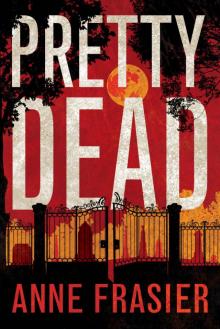 Pretty Dead
Pretty Dead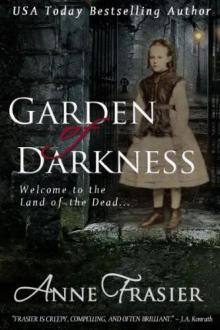 Garden of Darkness
Garden of Darkness